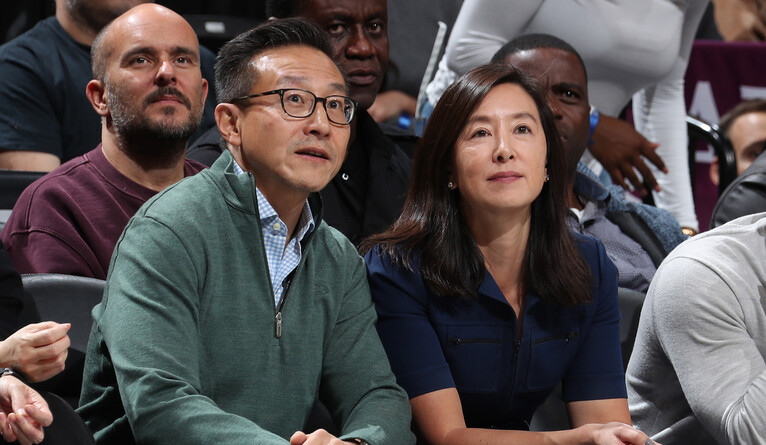
Yale News
On Tuesday, the University announced a donation to establish the Wu Tsai Institute, which will provide a hub for researchers to study human cognition.
The institute was founded with a donation from alumnus Joseph Tsai ’86, JD ’90 and his wife Clara Wu Tsai, who were present at the announcement Zoom webinar. Also in attendance were University President Peter Salovey, University Provost Scott Strobel, School of Medicine Dean Nancy Brown ’81, Faculty of Arts and Sciences Dean Tamar Gendler and professor of psychology Nicholas Turk-Browne — who is also the inaugural director of the institute.
“We have so much talent in the neurosciences spread throughout the University,” Salovey said in an interview with the News. “But it’s everywhere, and what we really needed was an institute that would get all of those people together, bring coherence to it.”
In his opening remarks during the webinar, Strobel mentioned the University Science Strategy Committee, which he chaired. The committee identified neuroscience research and integrative data science as two of the University’s priorities in the sciences. The institute, which will be located at 100 College St., bridges both areas.
He emphasized the importance of the institute in providing expanded opportunities for existing faculty as well as opening up the possibility of hiring new professors in related departments.
Additionally, the funding for the institute will allow Yale to create an internal grant mechanism for “high-risk, high-reward ideas” ideas, launch a postdoctoral fellowship program and start a paid internship program for undergraduates.
“[The institute] provides an opportunity to bring both existing faculty, wherever they may be located within the medical school or the Faculty of Arts and Sciences, and bring them and co-locate them within that building,” Strobel said. “And it’s an opportunity to recruit additional talent, with people that would fill some specialty gaps that we have in the collection of faculty that are here.”
University administrators emphasized that the WTI will be interdisciplinary and will be composed of three main academic centers: one for neurodevelopment and plasticity, another for neurocognition and behavior and one for neurocomputation and machine intelligence.
Turk-Browne added that while the WTI will start with these academic centers, there is room to create other focus areas as work in the Institute progresses.
“That’s the initial vision, but the reality is that there’s a lot of work to be done, there’s a lot to be discovered, and this is a gift that will transform the study of cognition in perpetuity, so I do imagine we will evolve over time, as we make discoveries, learn about the new fields, build the kind of interdisciplinary bridges that Joe mentioned,” he said. “So, absolutely, this will be a living entity that will grow and change and adapt over time.”
Turk-Browne clarified that for now, he will stay on as co-director of undergraduate studies for neuroscience in addition to his appointment at the institute.
The two are complementary roles, Turk-Browne said, since a core component of the neuroscience major is year-long senior research.
“The Institute will expand Yale’s unparalleled ability to develop technologies that will revolutionize neuroscience,” Salovey said during the webinar. “The establishment of the Wu Tsai Institute represents an inflection point. It can dramatically change the trajectory of our understanding of cognition.”
In an interview with the News, Tsai emphasized that his vision for the institute is to provide a space where all of Yale’s faculty can participate in the research process. He and Salovey first thought up the idea for the Institute over breakfast in La Jolla, California.
“One part of the mission is being interdisciplinary,” Tsai said. “I really hope that we can also bring the humanities fields, economists, sociologists, into this fold at some point. I came to the realization that the world needs to learn more about the human mind and human cognition, rather than being obsessed with the intelligence of machines.”
The Tsais have previously donated to the University. They gave money to found the Tsai Center for Innovative Thinking at Yale and have supported the men’s and women’s lacrosse programs, the computer science department and the law school.
Additionally, they own several professional sports franchises: the Brooklyn Nets, New York Liberty and San Diego Seals.
Rose Horowitch | rose.horowitch@yale.edu
Beatriz Horta | beatriz.horta@yale.edu







